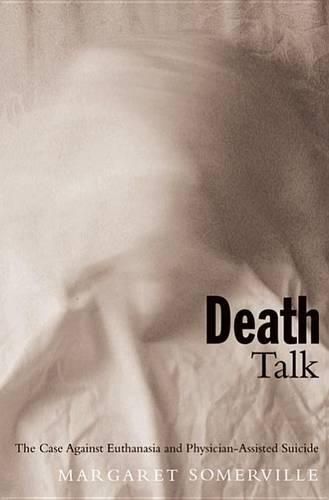Readings Newsletter
Become a Readings Member to make your shopping experience even easier.
Sign in or sign up for free!
You’re not far away from qualifying for FREE standard shipping within Australia
You’ve qualified for FREE standard shipping within Australia
The cart is loading…






This text asks why, when our society has rejected euthanasia for over 2000 years, are we now considering legalizing it? Has euthanasia been promoted by deliberately confusing it with other ethically acceptable acts? What is the relation between pain relief treatments that could shorten life and euthanasia? How do journalistic values and media ethics affect the public’s perception of euthanasia? What impact would the legalization of euthanasia have on concepts of human rights, human responsibilities, and human ethics? Can we imagine teaching young physicians how to put their patients to death?; There are vast ethical, legal, and social differences between natural death and euthanasia. In this text, Margaret Somerville argues that legalizing euthanasia would cause irreparable harm to society’s value of respect for human life, which in secular societies is carried primarily by the institutions of law and medicine. Death has always been a central focus of the discussion that we engage in as individuals and a society in searching for meaning in life. Moreover, we accommodate the inevitable reality of death into the living of our lives by discussing it, that is, through death talk.
Until the last 20 years this discussion occurred largely as part of the practice of organized religion. Today, in industrialized western societies, the euthanasia debate provides a context for such discussion and is part of the search for a new societal-cultural paradigm. Seeking to balance the death talk articulated in the euthanasia debate with life talk, Somerville identifies the very serious harms for individuals and society that would result from accepting euthanasia. A sense of the euthanasia debate as it unfolds, is captured through including Somerville’s responses to or commentaries on several other authors’ contributions to this debate.
$9.00 standard shipping within Australia
FREE standard shipping within Australia for orders over $100.00
Express & International shipping calculated at checkout
This text asks why, when our society has rejected euthanasia for over 2000 years, are we now considering legalizing it? Has euthanasia been promoted by deliberately confusing it with other ethically acceptable acts? What is the relation between pain relief treatments that could shorten life and euthanasia? How do journalistic values and media ethics affect the public’s perception of euthanasia? What impact would the legalization of euthanasia have on concepts of human rights, human responsibilities, and human ethics? Can we imagine teaching young physicians how to put their patients to death?; There are vast ethical, legal, and social differences between natural death and euthanasia. In this text, Margaret Somerville argues that legalizing euthanasia would cause irreparable harm to society’s value of respect for human life, which in secular societies is carried primarily by the institutions of law and medicine. Death has always been a central focus of the discussion that we engage in as individuals and a society in searching for meaning in life. Moreover, we accommodate the inevitable reality of death into the living of our lives by discussing it, that is, through death talk.
Until the last 20 years this discussion occurred largely as part of the practice of organized religion. Today, in industrialized western societies, the euthanasia debate provides a context for such discussion and is part of the search for a new societal-cultural paradigm. Seeking to balance the death talk articulated in the euthanasia debate with life talk, Somerville identifies the very serious harms for individuals and society that would result from accepting euthanasia. A sense of the euthanasia debate as it unfolds, is captured through including Somerville’s responses to or commentaries on several other authors’ contributions to this debate.